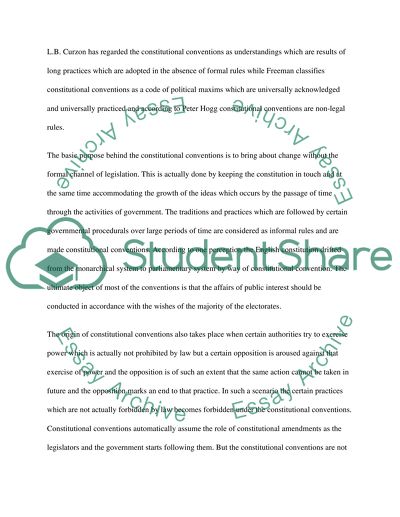Cite this document
(“Constitutional Conventions. Should Conventions Be Made Into Laws Essay”, n.d.)
Retrieved from https://studentshare.org/environmental-studies/1410976-ypwhat-are-constitutional-conventions-should
Retrieved from https://studentshare.org/environmental-studies/1410976-ypwhat-are-constitutional-conventions-should
(Constitutional Conventions. Should Conventions Be Made Into Laws Essay)
https://studentshare.org/environmental-studies/1410976-ypwhat-are-constitutional-conventions-should.
https://studentshare.org/environmental-studies/1410976-ypwhat-are-constitutional-conventions-should.
“Constitutional Conventions. Should Conventions Be Made Into Laws Essay”, n.d. https://studentshare.org/environmental-studies/1410976-ypwhat-are-constitutional-conventions-should.


